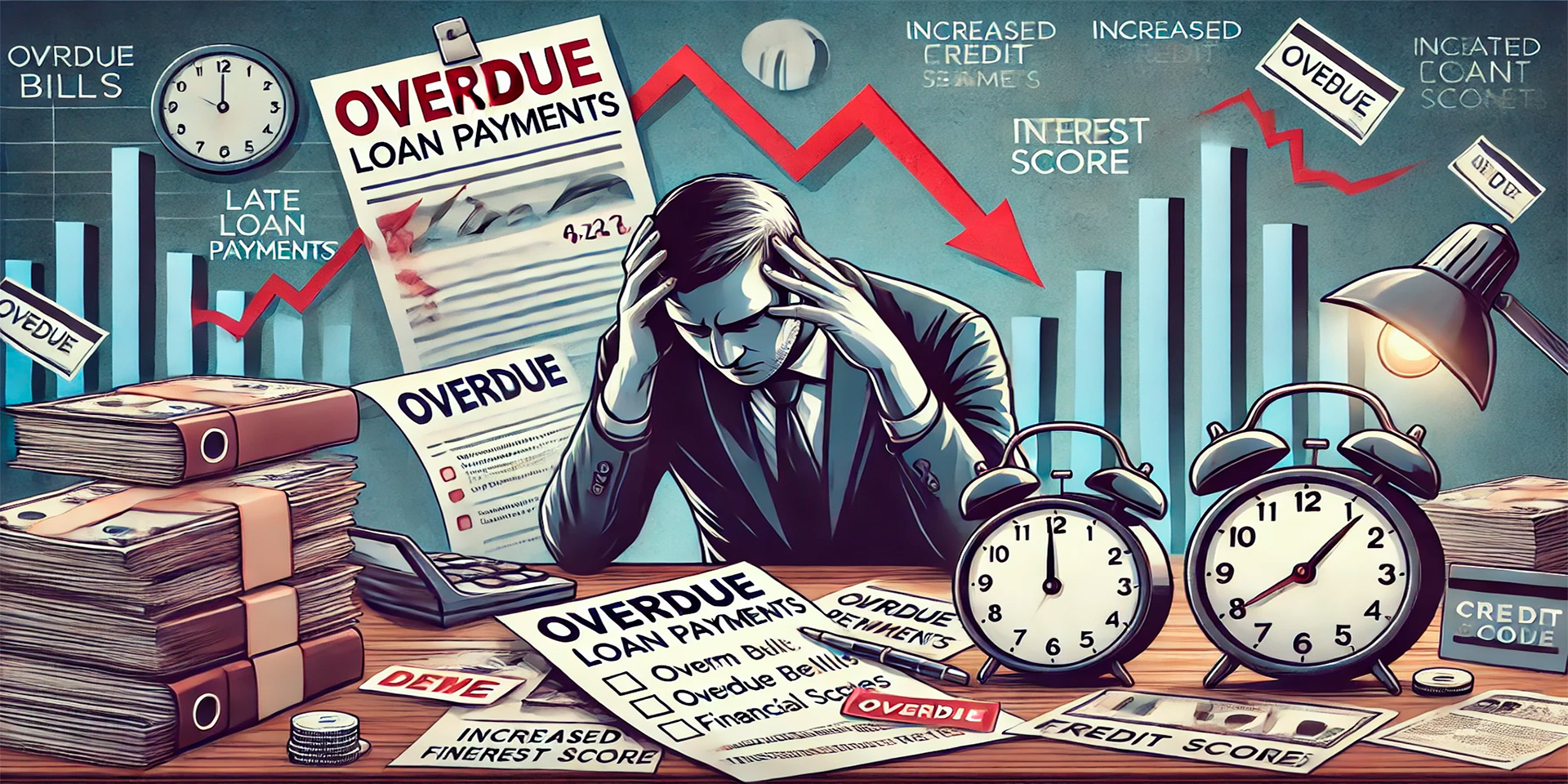
Timely Loan Payments: Key Strategies to Prevent Financial Strain
Late loan payments can lead to significant financial challenges, including penalties, increased interest rates, and damaged credit scores. These consequences can create long-term financial strain for both businesses and individuals, affecting your ability to borrow in the future. To avoid the pitfalls of late loan payments, it’s essential to develop strategies for staying on top of your financial obligations, ensuring that payments are made on time and managing your debt effectively.
Being proactive about loan repayment not only helps you avoid costly penalties but also strengthens your financial health and builds a positive relationship with lenders. By implementing practical strategies to ensure timely payments, you can protect your credit score, avoid unnecessary fees, and maintain financial stability.
The Consequences of Late Loan Payments
Before diving into the strategies to avoid late payments, it’s important to understand the consequences of falling behind on loan repayments. The immediate consequence of a late payment is often a late fee. Depending on the lender, this fee can range from a small percentage of the missed payment to a fixed charge, adding unnecessary costs to your loan.
Over time, late payments can lead to more serious consequences, such as increased interest rates or even loan default. When lenders report missed payments to credit bureaus, it can negatively impact your credit score, making it harder to secure favorable loan terms in the future. Additionally, multiple late payments can result in higher borrowing costs, as lenders may view you as a higher-risk borrower.
Avoiding these consequences requires a disciplined approach to loan management and a focus on timely repayment.

Strategies for Ensuring Timely Loan Payments
To avoid the financial strain of late loan payments, it’s essential to establish systems and habits that support timely repayment. Here are some key strategies to help you stay on track and meet your loan obligations.
Create a Detailed Budget
One of the most effective ways to ensure timely loan payments is to create a detailed budget that accounts for all your financial obligations. Your budget should include fixed expenses, such as loan payments, rent, and utilities, as well as variable costs, like groceries and entertainment. By mapping out your income and expenses, you can ensure that you have enough funds available to cover loan payments each month.
A well-organized budget also helps you identify areas where you can cut back on spending if necessary, freeing up cash to prioritize loan repayments. Regularly reviewing and updating your budget ensures that you stay in control of your finances and can adjust as needed.
Set Up Automatic Payments
Setting up automatic payments is a simple yet effective way to avoid missing a loan payment. Most lenders offer the option to automate monthly payments by linking them directly to your bank account. Once the automatic payment is set up, the loan amount is deducted on the due date, ensuring that payments are made on time, even if you’re busy or forget the payment deadline.
Automatic payments also help eliminate the stress of remembering due dates and reduce the risk of late fees. However, it’s important to monitor your bank account regularly to ensure that you have sufficient funds to cover the payment and avoid overdraft fees.
Prioritize Loan Repayments
In managing multiple financial obligations, it’s important to prioritize loan repayments to avoid falling behind. Loans with higher interest rates or those with more severe penalties for missed payments should take priority. Paying off these loans first helps you minimize financial risk and save on interest costs over time.
If you’re juggling multiple debts, consider using a strategy like the debt snowball or debt avalanche method. The debt snowball method involves paying off the smallest loans first, while the debt avalanche method focuses on paying off loans with the highest interest rates. Both methods can help you stay organized and ensure that you’re consistently making progress on your loan repayments.
Build a Financial Cushion
Unexpected expenses can easily derail your ability to make loan payments on time. To protect yourself from financial surprises, it’s a good idea to build a financial cushion or emergency fund. This fund should cover at least three to six months’ worth of living expenses, including your loan payments.
Having an emergency fund in place allows you to continue making payments even if your income is disrupted or you face an unexpected financial burden, such as a medical expense or car repair. With this safety net, you can avoid missing payments and protect your credit score from the negative effects of late repayments.
Managing Cash Flow for Loan Repayments
Maintaining positive cash flow is crucial for ensuring timely loan payments, especially for businesses. Cash flow management involves monitoring the timing of your incoming revenue and outgoing expenses to ensure that you always have enough funds available to meet your financial obligations.
Monitor Your Cash Flow Regularly
Regularly reviewing your cash flow helps you identify patterns and potential issues before they become major problems. Look for fluctuations in revenue or unexpected spikes in expenses that could impact your ability to make loan payments. By staying ahead of potential cash flow issues, you can take corrective action, such as cutting unnecessary costs or seeking additional revenue streams, to maintain your financial stability.
Negotiate with Lenders if Necessary
If you find yourself in a situation where you may struggle to make a loan payment, it’s important to communicate with your lender as soon as possible. Many lenders are willing to work with borrowers who proactively address potential issues. You may be able to negotiate new repayment terms, such as extending the loan term or temporarily reducing the monthly payment amount, to make the loan more manageable.
Ignoring the issue and allowing payments to become overdue can lead to more severe consequences, including penalties and damage to your credit score. Being upfront with your lender about your financial situation demonstrates responsibility and increases the likelihood that they will offer flexible repayment options.
Conclusion
Late loan payments can cause financial strain and lead to costly penalties, increased interest rates, and damage to your credit score. By implementing proactive strategies such as creating a budget, setting up automatic payments, and building a financial cushion, you can avoid the pitfalls of late loan repayments and maintain financial stability. Taking control of your loan management ensures that you meet your financial obligations while protecting your long-term financial health.
You May Also Like


